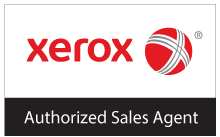One of the big challenges for businesses isn’t just keeping up with technology — it’s knowing how to integrate new technologies in a way that boosts efficiency, productivity, and growth. This is where adopting a holistic approach to business technology can help.
A holistic approach means viewing your technology ecosystem as an interconnected whole rather than a collection of separate parts. It involves integrating all your technology systems to work seamlessly together, creating a unified strategy that supports every aspect of your business. In this blog post, we’ll look at why businesses should consider adopting a holistic approach to their technology, the benefits it can offer, and how partnering with a Managed Services provider can help.
Efficiency and Productivity
One of the most compelling reasons to adopt a holistic approach to business technology is the potential for an improvement in efficiency and productivity. When your technology systems are integrated, they can communicate and share data seamlessly, streamlining tasks and cutting out any repetitive steps.
- Streamlining Operations – Imagine your customer relationship management (CRM) system, accounting software, and inventory management tools all functioning as a cohesive unit. An integrated technology ecosystem ensures that data flows smoothly between these systems without manual intervention. This reduces the time employees spend on administrative tasks, allowing them to focus on more value-added activities.
- Boosting Productivity – Integrated technology solutions also facilitate automation. Routine tasks such as data entry, scheduling, and reporting can be automated, freeing up your team’s time to concentrate on strategic initiatives. For example, automating invoicing and payment processes can significantly reduce the workload for your finance team, allowing them to focus on financial planning and analysis.
- Efficiency Gains – Consider a small retail business that uses separate systems for inventory management, sales tracking, and customer service. By adopting a holistic approach and integrating these systems, the business can achieve efficiency gains. Automated inventory updates based on sales data minimize stockouts and overstock situations, while centralized customer data helps provide personalized service, boosting customer satisfaction.
Improved Communication and Collaboration
A holistic technology approach can improve communication and teamwork within your organization.
- Improved Communication – Integrated communication tools such as unified messaging platforms, video conferencing, and collaborative workspaces allow your team to communicate effortlessly, regardless of their location. Whether it’s a quick chat, a detailed project discussion, or a virtual team meeting, these tools ensure that everyone stays connected and informed.
- Increased Team Productivity – Seamless communication can have a profound impact on team productivity. When employees can easily share information, provide updates, and collaborate on projects in real time, they can make faster decisions and execute tasks more efficiently. This leads to improved project outcomes and shorter turnaround times.
- Decision-Making Impact – For example, a marketing team working on a campaign can use integrated project management and communication tools to collaborate with the design team, gather feedback from the sales team, and get approval from management—all within a single platform. This streamlined communication process accelerates decision-making and ensures that everyone is on the same page.
Data Management and Analysis
Centralizing data management through a holistic technology approach can provide significant advantages.
- Centralized Data Management – A holistic technology strategy involves unifying your data sources and systems into a centralized repository. This centralized data hub allows for easier access, management, and analysis of data across your organization. It eliminates data silos and ensures that all departments have access to accurate and up-to-date information.
- Data Analysis – With centralized data, businesses can leverage advanced data analysis tools to gain insights and make informed decisions. Predictive analytics, for example, can help forecast customer trends, identify potential risks, and optimize operations. These insights enable businesses to develop strategic plans based on data-driven evidence, strengthening their competitive edge.
- Strategic Planning – Consider a small e-commerce company that integrates its sales, marketing, and customer service data into a single platform. By analyzing this consolidated data, the company can identify which products are performing well, understand customer preferences, and tailor marketing campaigns to target specific segments. This data-driven approach enables the business to allocate resources effectively and maximize its return on investment.
Improved Customer Experience
Crafting an amazing customer experience is essential for earning loyal customers and shining in a crowded market. Embracing a holistic technology strategy can truly boost this endeavour.
- Personalized Customer Experiences – Integrated technology systems allow businesses to gather and analyze customer data from various touchpoints, enabling them to deliver personalized experiences. For example, a holistic CRM system can track customer interactions, purchase history, and preferences, allowing businesses to tailor their communications and offerings to individual customers.
- Customer Loyalty and Retention – Improved customer experiences lead to higher customer satisfaction, loyalty, and retention. When customers feel valued and understood, they are more likely to return for repeat purchases and recommend your business to others. This positive word-of-mouth can significantly impact your bottom line.
- Target Your Customers – Consider a subscription-based service that uses integrated technology to personalize recommendations and communications for each subscriber. By analyzing subscriber behaviour and preferences, the business can suggest relevant products and services, send timely notifications, and offer exclusive deals. This personalized approach enhances the overall customer experience and fosters long-term loyalty.
Scalability and Flexibility
A well-rounded holistic technology strategy gives businesses the adaptability and freedom to adjust to evolving market trends and foster sustainable growth.
- Scalability – Scalable technology infrastructure allows businesses to expand their operations without major disruptions. Cloud-based solutions, for example, offer the ability to scale resources up or down based on demand, ensuring that businesses can handle increased workloads during peak periods without compromising performance.
- Adaptability to Market Dynamics – A holistic approach also enables businesses to respond quickly to market changes and emerging opportunities. By leveraging integrated technology, businesses can pivot their strategies, launch new products or services, and enter new markets with agility.
- Best Practices – To design a scalable technology infrastructure, businesses should consider adopting modular and flexible solutions that can grow with their needs. This includes choosing cloud-based services, implementing scalable software architecture, and regularly reviewing and updating their technology stack to stay current with industry trends.
Cybersecurity
Keeping business data safe is a priority for companies big and small. A holistic technology plan includes strong cybersecurity measures to safeguard sensitive information and minimize potential threats.
- Importance of Cybersecurity – Implementing comprehensive cybersecurity measures is essential for safeguarding your business against cyber threats such as data breaches, ransomware attacks, and phishing scams. A holistic approach ensures that cybersecurity is integrated into every aspect of your technology infrastructure, from network security to endpoint protection.
- Robust Cybersecurity Posture – Businesses can improve their cybersecurity posture by adopting a multi-layered security strategy. This includes implementing firewalls, intrusion detection systems, encryption protocols, and regular security assessments. Educating employees about cybersecurity best practices and conducting training sessions can also help prevent human errors that could lead to security breaches.
- Reduced Risks – As an example, a small business that integrates its cybersecurity measures with its overall technology strategy can proactively identify and address vulnerabilities. Regularly updating software, monitoring network traffic, and conducting penetration tests are some of the steps that can be taken to mitigate risks and protect sensitive data.
How a Managed Services Provider Can Help
Navigating the complexities of a holistic technology approach can be challenging, especially for small businesses with limited resources. Partnering with a Managed Services Provider (MSP) can provide valuable support and expertise.
- Expertise and Support – MSPs offer specialized knowledge and experience in managing and optimizing technology systems. They can help businesses design, implement, and maintain a holistic technology strategy tailored to their specific needs. By leveraging the expertise of MSPs, businesses can ensure that their technology infrastructure is robust, secure, and aligned with their goals.
- Proactive Tech Solutions – MSPs also offer proactive solutions to prevent issues before they arise. Regular system monitoring, software updates, and performance optimizations are some of the services provided by MSPs to ensure that technology systems remain reliable and efficient. This proactive approach minimizes downtime and maximizes productivity.
- Cost-Effective Solutions: Partnering with a Managed Services Provider (MSP) can offer cost-effective solutions for businesses looking to streamline their technology operations. MSPs can provide scalable services that fit the budget of businesses while still delivering high-quality support and expertise. By opting for an MSP, businesses can access advanced technology services at a fraction of the cost of maintaining an in-house IT department.
Final Words
Taking a well-rounded approach to business technology is important for businesses looking to grow sustainably and stay ahead of the competition. When technology systems are integrated and optimized, businesses can improve communication, manage data easily, provide personalized customer experiences, scale seamlessly, and ensure strong cybersecurity.
If you’re ready to take the next step, consider reaching out to our team of experts at hubTGI for guidance and support.
About hubTGI
hubTGI is a Canadian-owned Managed Services provider that offers Print Services, Workflow Solutions, Managed IT, Cybersecurity Solutions, Cloud Services and VoIP to help their customers control costs, secure their data and make their people more productive.
For the latest industry trends and technology insights visit hubTGI’s Resources page.








